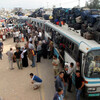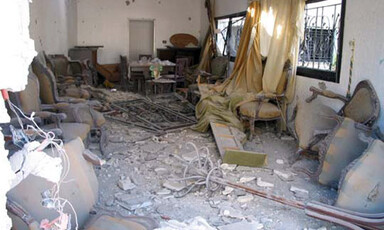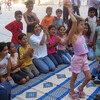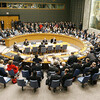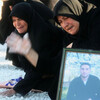
Washington out of touch with anger of Arab world, Syrian minister tells UN
26 September 2006
United States officials are interpreting the actions of the people of the Middle East in a distorted manner in a bid to justify their policies to the detriment of all concerned, the Foreign Minister of Syria told the General Assembly today. “Tragically, we all end up paying the price when the decision-makers in Washington believe that they know better, and are in a better position to understand and grasp the needs and circumstances of the Arabs,” said Walid Al-Moualem. “They diagnose the ambitions and aspirations of the Arab individual in a manner that is tailored to their own vision.” Read more about Washington out of touch with anger of Arab world, Syrian minister tells UN
